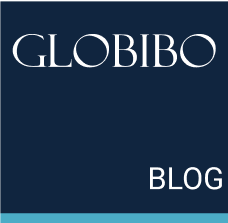In today’s interconnected world, accurate communication in the healthcare industry is essential for providing quality care to patients from diverse linguistic backgrounds. Medical translation services play a crucial role in bridging language barriers and ensuring effective communication between healthcare professionals and patients. This blog explores the importance of medical translation, its impact on patient care, and the key considerations for successful medical translations.
Ensuring Patient Safety and Care
Accurate medical translation is vital for ensuring patient safety and delivering quality healthcare. From medical histories and diagnosis reports to prescriptions and discharge instructions, precise translation ensures that patients fully comprehend their medical information. Miscommunication due to language barriers can lead to misunderstandings, errors in treatment, and compromised patient safety. Medical translation helps healthcare providers convey vital information accurately, enabling patients to make informed decisions about their health and treatment options. By facilitating clear and concise communication, medical translation enhances patient satisfaction, adherence to treatment plans, and overall healthcare outcomes.
Bridging Doctor-Patient Communication Gaps
Effective communication between healthcare providers and patients is essential for building trust, understanding patient needs, and providing appropriate care. Medical translation plays a crucial role in bridging the communication gaps caused by language barriers. By providing language support, medical translators enable doctors and nurses to effectively communicate with patients in their native language. This facilitates a deeper understanding of patients’ concerns, symptoms, and medical histories, leading to more accurate diagnoses and personalized treatment plans. Effective doctor-patient communication through medical translation fosters patient engagement, improves patient-doctor relationships, and enhances overall healthcare experiences.
Accurate Translation of Medical Documents
Medical translation extends beyond verbal communication and includes the translation of important medical documents. These documents may include medical records, consent forms, research papers, clinical trial documentation, and medication guidelines. Translating these documents accurately is crucial for sharing medical knowledge, collaborating across borders, and ensuring consistency in healthcare practices worldwide. Professional medical translators with expertise in the medical field and knowledge of industry-specific terminology can deliver precise translations that uphold the integrity of the content while considering cultural nuances and regulatory requirements.
Cultural Sensitivity and Terminology Accuracy
Medical translation requires more than linguistic proficiency; it demands cultural sensitivity and accuracy in terminology usage. Healthcare practices, beliefs, and terminology can vary across different cultures and regions. Medical translators must navigate these cultural nuances to ensure accurate and culturally appropriate translations. This includes understanding medical jargon and local dialects and adapting translations to align with cultural norms.
Moreover, medical translation professionals must stay updated with the latest medical terminologies and industry standards to ensure consistent and accurate translations. By considering cultural sensitivity and maintaining terminology accuracy, medical translation promotes effective communication and fosters trust between healthcare providers and patients from diverse cultural backgrounds.
Partnering with Professional Medical Translation Services
To ensure accurate and reliable medical translations, healthcare providers should partner with professional language service providers specializing in medical translation. These providers have a pool of experienced medical translators who possess in-depth knowledge of medical terminology, regulations, and industry-specific guidelines. By leveraging the expertise of professional translators, healthcare organizations can ensure that their medical translations are accurate, confidential, and compliant with regulatory requirements.
Additionally, working with reputable language service providers guarantees access to advanced translation tools and technologies that streamline the translation process and maintain consistency in terminology usage.
To Sum Up
In conclusion, medical translation serves as a vital tool in breaking down language barriers and facilitating effective communication in healthcare. By ensuring accurate translations of medical information, medical translators play a crucial role in enhancing patient safety, promoting understanding between healthcare professionals and patients, and improving overall healthcare outcomes. The ability to bridge the communication gaps caused by linguistic diversity enables doctors to provide personalized care, make accurate diagnoses, and develop tailored treatment plans.
To leverage the benefits of professional medical translation services, healthcare providers can partner with reputable language service providers like Globibo. With expertise in medical translation industry trends and knowledge of industry-specific terminology, we offer accurate and reliable translations that comply with regulatory requirements. By utilizing the services of experienced medical translators, healthcare organizations can enhance patient care, foster effective global communication, and create a culturally inclusive healthcare environment. For seamless medical translation services, visit Globibo and unlock the power of accurate language communication in healthcare.


